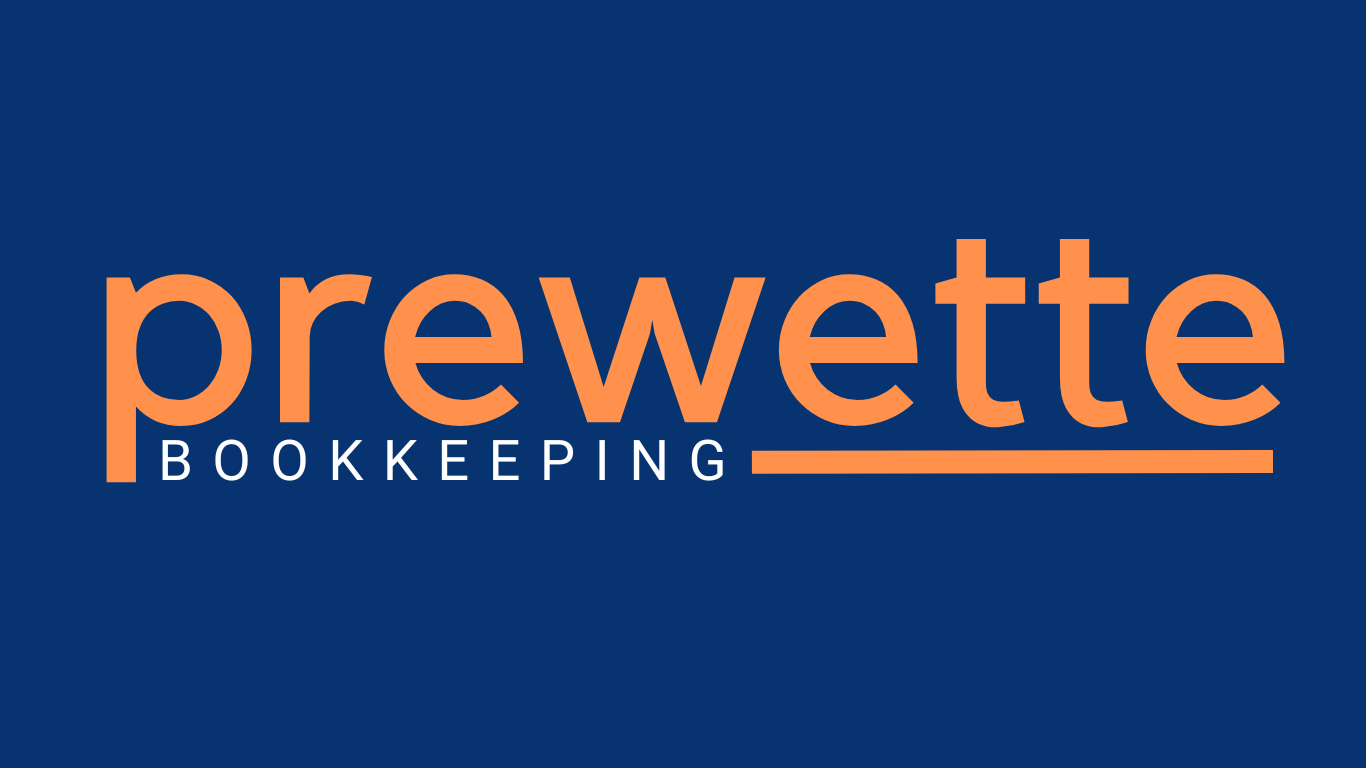Blog
Blog

By Tim Prewette
•
March 21, 2025
As a small business owner, keeping a close eye on your finances is essential to your success. While day-to-day financial management like tracking expenses and income is important, it’s equally critical to have a clear understanding of where your business is heading financially. This is where financial forecasting comes in. In this post, we’ll explore what financial forecasting is, why it’s crucial for your small business, and how to create an effective forecast that will help you plan for the future. What is Financial Forecasting? At its core, financial forecasting is the process of estimating your business’s future financial outcomes based on historical data, current trends, and market conditions. Essentially, it's a prediction of how much revenue you expect to earn, what your expenses might look like, and what your profits (or losses) could be during a specific period in the future. Forecasting isn’t about making perfect predictions—it’s about making educated guesses based on the best available information. A solid financial forecast helps guide business decisions, manage cash flow, and avoid unexpected surprises. Types of Financial Forecasts There are two main types of financial forecasts small businesses typically use: Short-Term Financial Forecasting Timeframe: Typically covers periods of up to one year. Purpose: Focuses on immediate cash flow , upcoming expenses, and working capital needs. It helps ensure that you have enough funds to cover your day-to-day operations and avoid cash flow problems. Long-Term Financial Forecasting Timeframe: Usually spans one to five years or more. Purpose: Provides a broader view of your business’s financial future, helping with strategic planning, growth targets, and investment decisions. This forecast is often used to inform business expansion plans and funding needs. Why Does Financial Forecasting Matter? Financial forecasting is vital for several reasons. Here’s why it should be a priority for your business: 1. Helps Manage Cash Flow Cash flow is the lifeblood of any business. If you’re spending more money than you’re making or if you have unpredictable income streams, forecasting helps you anticipate periods of cash shortfall and plan ahead to avoid financial stress. A good forecast lets you know when to expect large expenses or drops in revenue, giving you time to adjust. 2. Guides Decision-Making Accurate financial forecasting provides critical data to inform your business decisions. Whether you’re deciding when to hire new employees, invest in new technology, or explore new markets, having a financial forecast helps ensure that your decisions align with your business’s capacity and financial reality. 3. Improves Financial Planning A forecast acts as a roadmap for your business. By projecting future revenue, costs, and profit margins, you can identify potential issues and opportunities before they happen. This insight allows you to set realistic budgets, identify areas to cut costs, and spot trends that could drive growth. 4. Helps Secure Financing Whether you’re seeking a loan or looking to attract investors, potential lenders or investors want to know that your business is financially sound and has a plan for growth. A solid financial forecast demonstrates that you have a clear understanding of your business’s financial position and future potential. 5. Mitigates Risk Running a business always involves some level of risk, but forecasting allows you to anticipate and manage those risks. For instance, if you foresee a dip in revenue, you can adjust your expenses accordingly. Similarly, if you expect increased demand, you can plan to increase inventory or hire additional staff. 6. Increases Business Valuation Financial forecasting can give you a clearer picture of your company’s financial health , which is crucial if you're planning to sell your business or bring in investors. A strong, well-supported financial forecast increases confidence in your business’s value and future potential. How to Create a Financial Forecast for Your Small Business Creating a financial forecast involves gathering historical financial data, making assumptions about future performance, and projecting key financial statements. Here's how to get started: Step 1: Gather Historical Financial Data The first step in any forecast is reviewing your past financial performance . Look at your income statements, balance sheets, and cash flow statements from previous periods. This data will give you a baseline for future projections. Key metrics to gather: Revenue (sales and other income) Operating expenses (cost of goods sold, rent, utilities, etc.) Gross profit margin Net income Cash flow Step 2: Identify Key Assumptions Your forecast is based on certain assumptions about the future. These could include expected sales growth , planned price changes, or seasonal demand fluctuations. You'll need to make educated assumptions about these factors based on market research, industry trends, and your business’s historical performance. Common assumptions to consider: Sales growth rate Customer acquisition cost Pricing strategies Expense trends (e.g., inflation, salary increases) Step 3: Project Revenue and Expenses Revenue: Start by projecting how much revenue you expect to generate during the forecast period. Consider factors like seasonality, marketing campaigns, new product launches, or changes in your market. Expenses: Next, estimate your business expenses, such as rent, payroll, utilities, inventory costs, and marketing. Be sure to factor in both fixed and variable costs. Step 4: Prepare Financial Statements Based on your projections, create the following key financial statements: Income Statement : This shows projected revenue, expenses, and profits for the forecast period. Cash Flow Statement : This outlines the expected inflows and outflows of cash, helping you plan for periods when cash might be tight. Balance Sheet : This gives a snapshot of your business’s assets, liabilities, and equity, showing the financial position of your company. Step 5: Monitor and Adjust A forecast is not a set-it-and-forget-it tool. You should monitor your actual performance regularly and adjust your forecast as needed. If you experience unexpected changes, like a sales slump or unexpected expense, update your forecast to reflect those shifts. Tools to Help with Financial Forecasting Many small businesses use accounting software to help with financial forecasting. Some popular tools include: QuickBooks: Offers budgeting and forecasting tools to help you predict cash flow and expenses. Xero: Provides easy-to-use forecasting tools for small businesses. Excel or Google Sheets: A manual, but customizable way to create financial forecasts from scratch. Conclusion Financial forecasting is an essential tool for every small business . It gives you a roadmap for managing cash flow, making informed decisions, and positioning your business for growth. By understanding your financial future, you’ll be better equipped to handle challenges, seize opportunities, and keep your business on track. Remember, forecasting is an ongoing process, so regularly update your forecast to stay aligned with your business’s changing needs. With careful forecasting, you’ll not only protect your business’s financial health but also gain valuable insights that drive long-term success.

By Tim Prewette
•
March 10, 2025
As a small business owner or nonprofit leader, applying for a loan or a grant can be a game-changer. Whether you’re seeking a loan to expand operations, fund a new project, or simply bridge a temporary cash flow gap, having your financials in order is essential. One of the most critical steps in preparing for that application process? Bookkeeping. Bookkeeping is more than just tracking income and expenses—it’s about creating a solid financial foundation that helps you make informed decisions and communicate your financial health clearly to potential lenders or funders. Here’s why keeping your books in order is a non-negotiable step when applying for loans and grants. 1. Demonstrates Financial Responsibility and Trustworthiness Lenders and grant providers want to know that they’re investing in an organization that can handle financial matters responsibly. If you haven’t been diligent with your bookkeeping, it may raise red flags and cast doubt on your ability to manage the funds they provide. Accurate, up-to-date financial records show that you are serious about your organization’s finances. Whether you’re a nonprofit or small business, demonstrating that you understand your financial situation—through balance sheets, income statements, and cash flow statements—instills confidence in potential lenders or funders. In short, good bookkeeping shows that you are a trustworthy investment. 2. Helps You Meet Loan or Grant Application Requirements Many loans and grants require detailed financial documentation to evaluate your eligibility. These documents may include: Profit and loss statements Cash flow projections Balance sheets Tax returns Without accurate, organized bookkeeping, you may struggle to provide these crucial documents. Having clean, up-to-date records ensures you can easily generate these reports, saving you time and effort during the application process. Furthermore, some grants and loans may require specific financial metrics (such as a certain debt-to-equity ratio or positive net income), and bookkeeping helps you track and meet those criteria. 3. Gives You a Clear Picture of Your Financial Health When applying for a loan or grant, you need to be able to confidently answer questions about your organization’s financial health. Lenders want to understand how much revenue your business is generating, your outstanding debts, and your overall ability to repay the loan. Nonprofits may need to demonstrate sustainability and the ability to fund future projects. Proper bookkeeping allows you to have these answers at your fingertips. Without it, you could find yourself scrambling to gather financial information that may ultimately hinder your ability to secure funding. 4. Helps You Forecast and Plan for the Future A good bookkeeping system doesn’t just track your current financials—it also helps you forecast future income and expenses. When applying for a loan or grant, being able to show a well thought out financial projection gives lenders or funders confidence that you’ve planned for the future and have considered potential risks and challenges. For example, if you’re applying for a loan to open a new store or expand your nonprofit’s outreach, you’ll need to project future sales, income, and expenses. Proper bookkeeping and financial forecasting can help you create realistic, data-backed projections that strengthen your application. 5. Supports Tax Compliance and Avoids Audits Bookkeeping isn’t just about applying for loans and grants; it’s also about ensuring you stay compliant with tax laws. If you don’t have accurate records, you could run into trouble during tax season or even face audits, which could jeopardize your chances of securing funding. Lenders and grant providers will often ask for recent tax returns to verify your financial status. Having your bookkeeping in order helps ensure that these returns are accurate and up to date, making the process of applying for loans and grants smoother and more efficient. 6. Helps You Avoid Overborrowing or Undervaluing Your Needs Without proper bookkeeping, you may not fully understand how much you need to borrow or how much funding you require for your nonprofit. It can be easy to overestimate or underestimate your funding needs, leading to borrowing too much, taking on too much debt, or not securing enough funds to carry out your projects. With accurate financial records, you’ll have a clear sense of what you can afford to borrow, what funds you need, and how much debt your business or nonprofit can handle. This not only improves your chances of getting approved for the right amount but also ensures that you don’t find yourself in a financially unsustainable situation down the road. 7. Increases Your Chances of Approval Many lenders or grant-makers will look at your financial history and performance as part of their decision-making process. The better your financial records, the more likely you are to be approved for the funding you need. Accurate bookkeeping doesn’t just help you with the application—it improves your overall credibility. By keeping your financials in good shape, you are more likely to stand out from other applicants who may not have their records as well-organized, making you a more attractive option for lenders or funders. Conclusion Bookkeeping is often seen as a tedious or secondary task, but when it comes to securing a loan or grant, it’s one of the most crucial elements of the application process. Having organized, accurate, and up-to-date financial records can make all the difference in helping you secure the funding your business or nonprofit needs to grow and succeed. It not only helps you stay on top of your finances but also demonstrates your professionalism and reliability to potential lenders or funders. If you’re not already on top of your bookkeeping, now is the time to start. Whether you handle it in-house, hire a bookkeeper, or use accounting software, taking the time to maintain proper financial records will pay off in the long run—and could be the key to getting your next loan or grant.

By Tim Prewette
•
February 28, 2025
Bookkeeping is an essential task for any business, but it can be easy to get overwhelmed with the day-to-day tasks and neglect the important financial aspects of your business. In this blog post, we'll explore some basic tips on getting bookkeeping right, to help you stay on top of your finances and ensure the success of your business. 1. Keep track of your expenses and income. The first step in getting bookkeeping right is to keep track of all your expenses and income. This includes everything from rent and utilities to office supplies and travel expenses. Keeping detailed records of your expenses and income will help you stay organized and make it easier to track your finances. 2. Use a budget to stay on track Creating a budget and sticking to it is a crucial step in managing your finances. A budget helps you keep track of your income and expenses, and makes it easier to identify areas where you're overspending. When creating your budget, be sure to include all of your fixed expenses, such as rent, utilities, and insurance, as well as your variable expenses, such as marketing and travel costs. Once you have a budget in place, make sure to stick to it by regularly reviewing your expenses and making adjustments as necessary. 3. Make sure to save for taxes One of the most important things you can do to stay financially stable is to set aside money for taxes. As a business owner, it's important to make sure that you're setting aside enough money to cover your tax bill. A good rule of thumb is to set aside at least 30% of your income for taxes. This will help ensure that you're able to cover your tax bill when it comes due and avoid any financial difficulties. 4. Get help from a professional if needed If you're feeling overwhelmed with your bookkeeping tasks, don't hesitate to seek help from a professional. An accountant or bookkeeper can help you navigate the financial aspects of your business and provide valuable advice on how to manage your finances. They can also help you with tasks such as creating a budget, managing your cash flow, and preparing your taxes. 5. Stay organized Staying organized is essential for the success of your business, and it starts with keeping your finances in order. By keeping detailed records of your expenses and income, creating a budget, and setting aside money for taxes , you can stay organized and manage your finances effectively. 6. Review your books regularly Finally, it's important to review your books regularly to ensure that all of your financial records are accurate and up to date. This includes reconciling your bank statement, checking for errors, and making any necessary adjustments. By reviewing your books regularly, you'll be able to catch any errors or discrepancies before they become a problem. In conclusion, bookkeeping is an essential task for any business, and it's important to get it right. By keeping track of your expenses and income, using a budget to stay on track, saving for taxes, getting help from a professional if needed, staying organized, and reviewing your books regularly, you can ensure that your finances are in order and that your business is on the right track to success. Remember, bookkeeping is not just a yearly chore, it's an ongoing process that helps you stay on top of your finances, manage your cash flow and make informed business decisions.

By Tim Prewette
•
January 31, 2025
Tax season is a crucial time for small business owners . It can be overwhelming to juggle your day-to-day operations while ensuring your books are in order and all your tax obligations are met. But with the right preparation, you can navigate tax season with ease and avoid common pitfalls. To help you sail through tax season like a pro, here are five essential tips that will not only keep you on track but might even save you some money in the process. 1. Stay on Top of Your Bookkeeping Throughout the Year One of the best ways to minimize stress during tax season is to keep your books organized year-round. If you wait until tax time to sort through your receipts, invoices, and financial records, you’re setting yourself up for a chaotic and stressful experience. Why it matters: Accurate and up-to-date bookkeeping ensures that all your income and expenses are tracked properly. This makes filing your taxes faster, easier, and reduces the chance of missing any deductions or making mistakes on your return. Action steps: Set aside time each week or month to update your books. Use accounting software to automate some processes. Keep digital copies of receipts to make tracking easier. If you find yourself behind, take steps to get your receipts and paperwork organized. Anything on paper will need to be put into accounting software or a spreadsheet to make it easier for your tax preparer. If you are short on time, reach out to a bookkeeper who can get your accounting up to date for you and make tax filing go more smoothly. 2. Understand Business Deductions and Credits As a small business owner, you’re likely eligible for a variety of tax deductions that can significantly reduce your taxable income. From home office deductions to business travel expenses, knowing what deductions you qualify for can save you a lot of money. Common deductions include: Office supplies and equipment Marketing and advertising costs Employee wages and benefits Business-related travel and meals Depreciation on business property Action steps: Keep a detailed log of all expenses related to your business. Ensure you separate personal and business expenses clearly, which is crucial for claiming deductions. If you’re unsure about what you can claim, consult with a tax professional or bookkeeper who can guide you through the process. 3. Prepare for Self-Employment Taxes and Quarterly Payments As a small business owner, you likely operate as a sole proprietor, LLC, or another structure that requires you to pay self-employment taxes. These taxes cover Social Security and Medicare, and they can catch some business owners off guard if they don’t plan ahead. Why it matters: Self-employment taxes can add up quickly, and failing to set aside enough money throughout the year can result in a hefty bill come tax time. Action steps: Set aside a percentage of your income throughout the year to cover self-employment taxes. If your business is profitable, make quarterly estimated tax payments to avoid penalties for underpayment. Work with your bookkeeper to estimate your self-employment taxes early so you’re not hit with a big surprise. 4. File on Time to Avoid Penalties One of the easiest ways to avoid stress during tax season is to stay on top of deadlines. Filing late can lead to penalties and interest, which can add up quickly and make an already difficult tax season even worse. Why it matters: Avoiding late fees and penalties can save you money and ensure your business remains in good standing with the IRS. Action steps: Mark your calendar with important deadlines, such as the date for filing your business tax return and paying any outstanding taxes. If you’re unable to file on time, file for an extension. However, keep in mind that an extension only gives you more time to file, not to pay any taxes owed. Consider working with a tax professional or bookkeeper to ensure your tax return is submitted correctly and on time. 5. Consult a Tax Professional or Bookkeeper If you’re feeling overwhelmed by the tax season process, it’s time to enlist help. A tax professional or bookkeeper can provide expert guidance and ensure that your taxes are filed accurately, on time, and in the most tax-efficient manner possible. Why it matters: Tax laws can be complex, and a tax professional will help you navigate the intricacies of business deductions, credits, and filing requirements. They can also help with long-term tax planning to reduce your tax burden in future years. Action steps: Hire a trusted tax professional or bookkeeper who understands your business structure and industry. Schedule regular check-ins throughout the year to make sure you’re on track and taking advantage of all available tax benefits. Use your tax professional's expertise to explore tax strategies that can benefit your business, such as retirement contributions or tax credits for small businesses. In Conclusion: Tackle Tax Season with Confidence Tax season doesn’t have to be a source of stress and anxiety. By staying organized, understanding your deductions, and preparing for self-employment taxes, you’ll be in a much stronger position to handle your taxes like a seasoned pro. Remember, the key to surviving tax season as a small business owner is preparation. Don’t wait until the last minute—plan ahead, track your expenses, and get expert help when needed. Prewette Bookkeeping specializes in helping small business owners navigate the complexities of tax season. If you’re ready to make tax time a breeze, contact us today and let us help you stay organized, compliant, and confident all year long.

By Tim Prewette
•
January 10, 2025
In the nonprofit sector, financial literacy is more than just a technical skill—it’s a vital tool that can drive the success, sustainability, and impact of an organization. Nonprofits operate in a unique environment, balancing mission-driven goals with the practical need to manage resources effectively. Whether you’re a board member, staff member, or leader within a nonprofit organization, understanding the fundamentals of financial management can significantly enhance decision making, improve financial health, and contribute to long-term success. What Is Financial Literacy in Nonprofits? At its core, financial literacy in the nonprofit sector refers to the ability to understand and apply financial principles in a way that supports an organization’s objectives. This includes everything from understanding basic financial statements like balance sheets and income statements to grasping more complex concepts like budgeting, cash flow management, and financial forecasting. For nonprofit leaders and staff, financial literacy is the knowledge and confidence to make informed decisions that maximize the organization’s resources and ensure financial sustainability. The Role of Financial Literacy in Enhancing Decision-Making 1. Effective Resource Allocation Nonprofits often work with limited resources, which means prioritizing spending and resource allocation is crucial. Financially literate leaders and staff can review budgets and financial reports with a critical eye, ensuring that funds are directed toward the most impactful programs and initiatives. Understanding the financial data helps nonprofits make more informed decisions about which projects to scale, which to adjust, and where cuts might be necessary. 2. Informed Fundraising Strategy Financial literacy is particularly beneficial when developing and evaluating fundraising strategies. Nonprofits that understand their financial health are in a stronger position to set realistic fundraising goals, target the right donors, and allocate funds efficiently. Knowing the financial needs of the organization allows for better communication with potential donors and funders about how their contributions will be used, increasing the chances of attracting support. 3. Managing Restricted vs. Unrestricted Funds A common challenge for nonprofits is managing restricted versus unrestricted funds. Financially literate staff and board members can ensure that restricted funds—those earmarked for specific purposes—are used in accordance with donor intent, while unrestricted funds are available for general operating expenses. The ability to track and report on these funds with transparency can help organizations maintain trust with donors and regulatory bodies. 4. Monitoring Financial Health and Performance Financial literacy equips nonprofit leaders with the tools to regularly assess their organization’s financial health. This includes monitoring cash flow, assessing liabilities and assets, and understanding key financial metrics like operating margins or liquidity ratios. Being able to identify early warning signs of financial stress, such as declining revenue or rising expenses, allows nonprofits to take corrective action before problems escalate. Why Financial Literacy is Essential for Staff and Leadership 1. Promoting Organizational Transparency Nonprofit organizations are often funded by donations, grants, and public support, which makes financial transparency vital. Financial literacy helps leaders create clear, understandable financial reports that can be shared with board members , donors, and the public. This transparency fosters trust and accountability, ensuring that stakeholders feel confident in the organization’s stewardship of resources. 2. Empowering Staff to Contribute to Financial Decisions When staff members have a basic understanding of the organization’s financial situation, they become more engaged and empowered to make decisions that align with the nonprofit’s goals. From program managers to administrative staff, a team that understands the financial constraints and priorities can contribute innovative solutions, identify cost-saving opportunities, and help keep the organization financially on track. 3. Strengthening Board Governance Board members play a critical role in overseeing a nonprofit’s financial health , and financial literacy is essential for effective governance . Boards must understand financial reports and use that information to make strategic decisions, set appropriate policies, and ensure that the organization is meeting its financial obligations. Board members with financial knowledge are better positioned to ask the right questions, provide valuable guidance, and hold the organization accountable for its financial stewardship. 4. Sustaining Long-Term Growth Financially literate leaders are better able to make strategic decisions that will ensure the long-term sustainability of the nonprofit. This involves balancing short-term operational needs with long-term goals, like building an endowment, creating financial reserves, and planning for future growth. By making thoughtful financial decisions today, organizations can secure the resources they need to support their mission for years to come. Financial Literacy Can Lead to Greater Impact Ultimately, financial literacy directly impacts a nonprofit’s ability to fulfill its mission. By understanding financial management principles, leaders and staff can make decisions that allow the organization to maximize its resources, scale its programs, and serve the community effectively. Additionally, financial literacy enables nonprofits to better navigate complex financial landscapes, including tax compliance , reporting requirements, and grant management.

By Tim Prewette
•
December 20, 2024
Hiring a bookkeeper or a bookkeeping firm is a decision that depends on the size of your business, your budget, and your expectations for communication and accessibility to your bookkeeper. Both options have their own set of benefits and drawbacks, so it's important to weigh your options carefully before making a decision. If you have a small business , hiring a single bookkeeper may be the best option. A single bookkeeper can handle the day-to-day bookkeeping tasks, such as recording financial transactions, preparing financial statements, and reconciling bank and credit card statements. This can be a cost-effective option, as you will only have to pay for the services of one person. Additionally, if you have a small team, it can be easier to have one point of contact for all financial matters. A single bookkeeper is also more likely to have direct communication with their client, which is something many small business owners value. However, if you have a larger business or a more complex financial situation, hiring a bookkeeping firm may be the better option. A bookkeeping firm can provide you with a team of professionals who can handle a variety of tasks, such as financial forecasting, budgeting, and tax compliance. Additionally, a bookkeeping firm can provide you with specialized services, such as payroll management and financial analysis. This can be a more cost-effective option as you will have a team of experts working for you. The decision between a bookkeeping firm and a single bookkeeper depends on several factors: Size and Complexity of Your Business: Larger businesses with more complex financial needs may benefit from the diverse expertise offered by a bookkeeping firm. Smaller businesses, startups, or solo entrepreneurs may find a single bookkeeper sufficient for their needs. Budget: Bookkeeping firms tend to be more expensive, so businesses with tighter budgets may prefer the cost-effectiveness of a single bookkeeper. However, if the firm’s resources align with your long-term goals, the investment could pay off in the form of better financial management. Service Level and Relationship: If personalized service and building a long-term working relationship are important to you, a single bookkeeper might be the better option. On the other hand, if your business requires a wide range of financial expertise, a firm may be a better fit. In conclusion, the decision of whether to hire a bookkeeper or a bookkeeping firm depends on the size of your business and your budget. A single bookkeeper may be the best option for small businesses, while a bookkeeping firm may be the better option for larger businesses or those with more complex financial situations. Whichever option you choose, make sure to do your research and choose a bookkeeping professional or firm that can meet your needs.

By Tim Prewette
•
December 13, 2024
Maintaining clear and transparent financial records is crucial for any nonprofit organization . Not only does it ensure compliance with legal requirements, but it also helps build trust with donors, stakeholders, and the public. Financial transparency and accountability are foundational to the credibility and success of any nonprofit. In this blog post, we will explore essential bookkeeping tips that will help nonprofits maintain clear financial records and ensure transparency. 1. Set Up a Clear Chart of Accounts A chart of accounts is the backbone of your nonprofit’s financial system. It categorizes all financial transactions, from income and expenses to assets and liabilities. For nonprofits, it’s important to have a chart of accounts that is tailored to your specific needs, reflecting the unique nature of nonprofit activities such as grants, donations, and restricted funds. Tip: Ensure that your chart of accounts distinguishes between restricted and unrestricted funds. This will help maintain clarity when tracking donations and other income that must be allocated for specific purposes. 2. Use Accounting Software Designed for Nonprofits Accurate and efficient financial management relies heavily on the use of proper accounting software. Nonprofit accounting software is specifically designed to handle unique aspects of nonprofit finances, such as fund accounting, donor tracking, and grant management. Tip: Choose software that allows you to generate customized reports, track restricted and unrestricted funds, and generate statements that comply with nonprofit financial reporting standards (such as GAAP or FASB). Popular accounting software options for nonprofits include QuickBooks for Nonprofits, Xero, and Sage Intacct, which offer nonprofit-specific features such as donor management and grant tracking. 3. Track and Categorize All Sources of Income For nonprofits, income doesn’t just come from one source. It includes donations, grants, fundraising events, membership dues, and more. To ensure transparency, it is important to track each source of income separately and categorize them correctly. Tip: Maintain a detailed record of all donations, specifying whether they are one-time or recurring. If you receive grants, create a separate account for each grant and track how the funds are spent. Proper categorization of income helps ensure that funds are used appropriately and allows you to provide detailed reports to donors and stakeholders on how their money is being spent. 4. Record Expenses Accurately and On Time Nonprofits must track their expenses carefully, especially when dealing with restricted funds that are earmarked for specific purposes. Recording all expenses accurately and on time ensures that financial statements reflect the true financial position of the organization. Tip: Ensure that every expense is categorized correctly, whether it's program expenses, administrative costs, or fundraising expenses. Keep receipts and invoices for all expenditures, and review them regularly for accuracy. It’s also a good practice to implement a system for approving and processing expenses to prevent unauthorized or improper spending. 5. Reconcile Accounts Regularly Account reconciliations are an essential part of maintaining financial transparency. Reconciling your bank accounts and financial statements monthly ensures that your records are accurate and that any discrepancies are identified and corrected promptly. Tip: Regular reconciliations help prevent errors, fraud, and mismanagement. Make sure that all accounts—checking, savings, and credit—are reconciled regularly to keep financial reporting up to date. 6. Prepare Financial Statements and Reports Consistently Nonprofit organizations must prepare regular financial reports to provide insight into the organization’s financial health. Key reports include the Statement of Financial Position (Balance Sheet), the Statement of Activities (Income Statement), and the Statement of Cash Flows. Tip: Nonprofits should generate financial statements at least quarterly, and ideally monthly. These reports provide a snapshot of the organization’s finances and offer insight into income, expenses, and overall financial health. By keeping these reports up to date, you can provide clear and transparent information to stakeholders, including donors, board members, and potential funders. Transparency in your financial reporting fosters trust and shows that you are using funds efficiently and responsibly. 7. Implement Strong Internal Controls To prevent fraud or mismanagement, nonprofits should establish strong internal controls. Internal controls are policies and procedures that safeguard the organization’s assets and ensure financial integrity. Tip: Set up a system of checks and balances, such as having one person handle the receipts and another person handle the disbursements. Regular audits and financial reviews by external professionals are also essential for maintaining accountability. Having clear procedures in place for approving and managing financial transactions ensures that no one individual has too much control over the finances, reducing the risk of fraud or error. 8. Ensure Compliance with Tax and Reporting Requirements Nonprofits must adhere to a variety of legal and tax requirements , including filing IRS Form 990 annually and maintaining compliance with state and local regulations. Being aware of tax-exempt status rules and compliance requirements is essential for maintaining transparency and accountability. Tip: Regularly review your nonprofit’s tax obligations and deadlines. Consider working with a CPA who specializes in nonprofit accounting to ensure that you are in compliance with all reporting and tax laws. 9. Engage and Communicate with Stakeholders Donors, board members, and other stakeholders should be kept informed about the organization’s financial status. Regular communication can help build trust and ensure that the nonprofit’s work is aligned with the goals and expectations of its supporters. Tip: Share financial reports and annual statements with stakeholders. A well-prepared annual report, which includes a summary of your financial position and activities, can go a long way in building confidence in your nonprofit’s financial stewardship. 10. Audit Your Financials Periodically Conducting an internal audit or hiring an external auditor periodically can help identify weaknesses in your accounting systems and ensure everything is in order. Audits provide an additional layer of accountability and transparency that is vital for stakeholder confidence. Tip: Schedule an audit at least once a year, especially if your nonprofit handles large sums of money or has complex funding sources. An audit gives an independent assessment of your financial practices and can uncover any discrepancies or areas for improvement. Conclusion For nonprofits, financial transparency and accountability are essential not only for staying compliant with legal regulations but also for maintaining the trust and support of donors and stakeholders. By setting up clear financial systems, using the right tools, and implementing strong internal controls, nonprofits can effectively manage their finances and ensure they are using funds in the most efficient and transparent way possible. Remember, sound bookkeeping practices will not only help you stay organized but will also position your nonprofit for long-term success by fostering trust and credibility with your supporters.

By Tim Prewette
•
December 6, 2024
Accounting can often feel like a foreign language, especially for those who don’t deal with numbers on a daily basis. With so many specialized terms floating around, it’s easy to get confused or overwhelmed. To help clear up the confusion, here is a list of some of the most commonly misunderstood accounting terms and simple explanations to help you get a better grasp of your financials. Let’s dive in! 1. Assets vs. Liabilities What it means: In accounting, assets are things that a business owns that have value—like cash, property, inventory, or equipment. Liabilities, on the other hand, represent what the business owes—such as loans, accounts payable, or unpaid bills. Why it's misunderstood: Many people mistakenly think that liabilities are “bad” or negative. While liabilities represent debts or obligations, they are simply a part of a company’s financial structure. The key is to balance them effectively with assets to maintain financial health . 2. Revenue vs. Profit What it means: Revenue is the total income generated from business activities, like sales of goods or services, before any expenses are deducted. Profit is what’s left over after all expenses (including operating costs, taxes, etc.) have been subtracted from revenue. Why it's misunderstood: People often confuse revenue and profit, thinking that a business is doing well just because it has high revenue. However, high revenue doesn’t guarantee profitability. It’s the difference between revenue and the costs incurred to earn that revenue that truly determines financial success. 3. Accounts Receivable vs. Accounts Payable What it means: Accounts receivable (AR) refers to the money a business is owed by customers or clients for goods or services provided on credit. Accounts payable (AP), on the other hand, refers to the money a business owes to its suppliers or creditors for goods or services received on credit. Why it's misunderstood: The terms can sound similar, but they represent opposite financial situations. Accounts receivable is money your business is waiting to collect, while accounts payable is money your business needs to pay. Proper management of both is critical to maintaining cash flow. 4. Gross Profit vs. Net Profit What it means: Gross profit is calculated by subtracting the direct costs of producing goods or services (known as the cost of goods sold, or COGS) from total revenue. Net profit is what remains after all other expenses (like operating expenses, taxes , and interest) have been deducted from gross profit. Why it's misunderstood: Gross profit gives you an idea of how efficiently your business is producing its goods or services, while net profit shows the overall financial health after accounting for all expenses. A business can have a high gross profit but still struggle if its overhead or other costs are too high. 5. Depreciation What it means: Depreciation refers to the reduction in the value of an asset over time, typically due to wear and tear or obsolescence. It is an accounting method to allocate the cost of a long-term asset (like equipment or buildings) over its useful life. Why it's misunderstood: Depreciation is a non-cash expense, meaning it reduces taxable income but doesn’t involve actual cash outflow. Many small business owners misunderstand depreciation and might not account for it properly, which can impact their tax obligations and overall financial planning. 6. Equity What it means: Equity represents the ownership interest in a business. It’s the value that remains after subtracting liabilities from assets. For a corporation, it’s the value of shareholders’ interest, while for a sole proprietorship or partnership, it’s the owner’s or partners’ stake. Why it's misunderstood: Equity can be confusing because it reflects both the value of the company and the amount of ownership, which might differ depending on whether the business is privately owned or publicly traded. Many people mistakenly think of equity as the same as cash flow, but it's actually a snapshot of your ownership stake. 7. Accrual vs. Cash Accounting What it means: Accrual accounting recognizes revenues and expenses when they are incurred, regardless of when cash changes hands. Cash accounting, on the other hand, only recognizes transactions when cash is received or paid. Why it's misunderstood: The primary misunderstanding arises from timing differences. In accrual accounting, you might record revenue before receiving cash, which can give a different picture of your financial situation than cash accounting. Many small businesses, however, use cash accounting because it is simpler and more intuitive. 8. Capital Expenditures (CapEx) vs. Operating Expenses (OpEx) What it means: Capital expenditures (CapEx) are investments in physical assets, like buildings or equipment, that provide value over the long term. Operating expenses (OpEx) are the day-to-day costs of running a business, such as salaries, rent, and utilities. Why it's misunderstood: Business owners sometimes confuse CapEx with OpEx because both involve spending money. However, CapEx is typically a larger investment intended to benefit the business for many years, while OpEx is for ongoing operational needs. The distinction matters for accounting and tax purposes, as CapEx is depreciated over time, while OpEx is deducted in the year incurred. 9. Break-even Point What it means: The break-even point is the level of sales at which total revenues equal total costs, meaning the business isn’t making a profit, but it isn’t losing money either. Understanding your break-even point is crucial for pricing strategies and financial planning. Why it's misunderstood: Many entrepreneurs assume that reaching the break-even point means the business is thriving, but it just means the business has covered its costs. It’s important to understand that breaking even is the starting point for profitability, not the end goal. 10. Cash Flow vs. Profit What it means: Cash flow is the movement of money in and out of a business over a period, including all receipts and payments. Profit is what’s left after all costs are subtracted from revenues, as discussed earlier. Why it's misunderstood: Many businesses focus too much on profitability and overlook cash flow , which can lead to cash shortages. A business can be profitable but still struggle if it doesn’t have enough cash flow to meet its day-to-day obligations. Conclusion Understanding accounting terms is essential for making informed financial decisions for your business. By clearing up the confusion around these commonly misunderstood terms, I hope you feel more confident in managing your business’s financial health. If you need help with your bookkeeping or have any further questions, don't hesitate to reach out. I'm here to guide you toward better financial management and growth. Remember, accurate financials are the backbone of any successful business!

By Tim Prewette
•
November 22, 2024
Bookkeeping and accounting are often used interchangeably, but they are two distinct processes. Understanding the difference between these two tasks is crucial for any business, as they play different roles in managing the financial health of a company. Bookkeeping is the process of recording all of the financial transactions made by a business, including sales, purchases, and payments. This includes creating and maintaining financial records such as invoices, receipts, and bank statements. The information recorded during the bookkeeping process is used to create financial statements, such as the balance sheet and income statement, which provide an overview of the company's financial health. Accounting, on the other hand, is the process of interpreting and using the financial information recorded during the bookkeeping process to make sound business decisions. This includes analyzing financial statements, identifying trends, and making recommendations for how to improve the financial performance of the business. Bookkeeping is the foundation of accounting, and without accurate bookkeeping records, it is impossible to provide accurate financial statements. An important aspect of bookkeeping is also to maintain compliance with laws and regulations, such as tax laws and accounting standards. Accounting also includes other functions such as budgeting, forecasting, financial planning and analysis, and cost accounting. It also includes the preparation of financial reports for internal management and external parties, like investors and lenders. In conclusion, bookkeeping and accounting are two distinct processes that play different roles in managing the financial health of a company. Bookkeeping is the process of recording financial transactions and creating financial statements, while accounting is the process of interpreting and using this information to make sound business decisions. Understanding the difference between these two tasks is crucial for any business, as they are both essential for the success of any business. Remember, bookkeeping is the foundation of accounting, without which, it is impossible to provide accurate financial statements and make sound business decisions.

By Tim Prewette
•
November 15, 2024
As a real estate agent , it's essential to have a solid understanding of your finances and to keep accurate records of your income and expenses. Here are some bookkeeping tips to help you stay on top of your finances as a real estate agent. 1. Keep track of your expenses One of the most important things you can do to keep your finances in order is to keep track of your expenses. This includes things like office expenses, marketing and advertising costs, mileage, and any other expenses related to your business. Keeping a detailed record of your expenses will make it easier to claim deductions on your taxes and to identify areas where you can reduce costs. 2. Create a budget and stick to it Creating a budget is an essential step in managing your finances. This will help you to identify how much money you need to bring in to cover your expenses and to plan for future growth. Once you have a budget in place, it's important to stick to it as closely as possible. This will help you to stay on top of your finances and to avoid overspending. 3. Make a plan for marketing and advertising your business Marketing and advertising are essential for building your real estate business. Create a plan that outlines your marketing and advertising goals, your target audience, and the tactics you will use to reach them. Be sure to set aside money in your budget to cover the costs of your marketing and advertising efforts. 4. Set aside money for taxes Real estate agents are self employed, so it's essential to set aside money for taxes. This will help you to avoid any surprises when it comes time to file your taxes. A good rule of thumb is to set aside 30% of your income for taxes. 5. Stay up to date on the latest real estate news and trends To be a successful real estate agent, it's important to stay up to date on the latest real estate news and trends. This will help you to identify new opportunities and to stay ahead of the competition. Follow relevant blogs and social media accounts, attend industry events, and subscribe to industry publications to stay informed. In conclusion, keeping accurate records of your income and expenses is essential for any real estate agent. By following these bookkeeping tips , you can stay on top of your finances, make informed decisions about your business, and set yourself up for success in the real estate industry. Remember to keep track of your expenses, create a budget, make a plan for marketing and advertising your business, set aside money for taxes and stay up to date on the latest real estate news and trends.

By Tim Prewette
•
November 8, 2024
As tax season approaches, many small business owners and individuals begin to feel the pressure of organizing their finances. Whether you're self-employed, running a small business, or simply trying to stay on top of personal finances, keeping everything organized throughout the year is key to making tax time less stressful. One of the best ways to prepare is by working with a professional bookkeeper. A bookkeeper plays an essential role in organizing your finances and ensuring everything is in order before you file your taxes. Here's how a bookkeeper can help simplify the tax preparation process and ensure you're ready when tax season arrives. 1. Tracking and Categorizing Expenses One of the most important tasks a bookkeeper handles is tracking and categorizing your expenses throughout the year. By keeping detailed records of every transaction, they can ensure that all your expenses are properly categorized, which can save you money come tax time. Many small business owners struggle with correctly classifying expenses, especially when it comes to distinguishing between personal and business expenses. A bookkeeper can help you: Ensure you're not missing any deductible expenses. Avoid common mistakes, like classifying personal expenses as business expenses. Organize receipts and invoices so they’re easy to access when you need them for tax filing. With all your expenses organized, you’ll have a clear picture of where your money is going and what you can deduct from your taxable income. 2. Reconcile Bank Accounts Bank account reconciliation is another crucial task a bookkeeper performs regularly. They will review your business or personal accounts to make sure that all transactions are accounted for, ensuring your books match your bank statements. This process helps identify errors, fraud, or discrepancies early on, preventing surprises during tax season. Accurate reconciliations can also: Give you confidence in your financial reports. Make tax filing more straightforward, as the numbers will already be verified and accurate. Help you spot any unclaimed deposits or missed deductions. By reconciling accounts periodically, a bookkeeper ensures everything is up to date, so when tax time comes, all you need to do is hand over the information to your accountant or tax preparer. 3. Organizing Financial Reports Bookkeepers also help prepare critical financial reports, such as profit and loss statements, balance sheets, and cash flow statements. These reports give you a snapshot of your financial health and can help your accountant make informed decisions when preparing your taxes. The advantage of having a bookkeeper prepare these reports in advance is that they: Present a clear and concise picture of your business or personal finances. Allow you and your accountant to identify any potential tax-saving opportunities. Ensure that all income and deductions are accounted for and properly categorized. Financial reports help ensure you're in compliance with tax laws and can avoid issues like underreporting income or missing out on tax credits. 4. Preparing for Deductions and Credits A knowledgeable bookkeeper can help you identify deductions and tax credits you may qualify for. Whether it’s business-related expenses like office supplies, mileage, or home office deductions, or personal deductions such as student loan interest or mortgage insurance, a bookkeeper will help you organize these throughout the year. They’ll help you: Track deductible expenses in real-time so you don’t forget important items by year’s end. Organize documentation (receipts, invoices, statements) to back up deductions and credits. Maximize deductions by ensuring that you’re claiming everything you're entitled to. Properly preparing for deductions can significantly reduce your tax liability, and a bookkeeper is an expert in ensuring you don’t leave money on the table. 5. Ensuring Compliance with Tax Laws Keeping up with changing tax laws can be challenging for anyone. A bookkeeper is familiar with the latest tax regulations and will ensure your financial records are compliant with federal, state, and local tax laws. This helps: Avoid penalties for misreporting or underreporting income. Ensure you're properly calculating tax obligations such as sales tax or payroll tax. Reduce the risk of triggering an audit due to errors in financial reporting. With a bookkeeper managing the numbers, you can rest assured that your financial records are in order and your taxes will be filed accurately. 6. Streamlining Communication with Your Accountant or Tax Preparer Tax preparers and accountants often require a lot of information to prepare your taxes, and the more organized your records are, the easier it is for them to get the job done quickly and accurately. A bookkeeper serves as the bridge between you and your accountant, ensuring that all necessary documents are provided and clearly laid out. By: Preparing the necessary financial statements. Ensuring all income and expenses are accounted for. Providing organized documentation for deductions and credits. Your bookkeeper can make the process smoother, reducing the back-and-forth communication and helping you file your taxes more efficiently. 7. Providing Peace of Mind Lastly, working with a bookkeeper provides peace of mind knowing that your finances are being managed properly. When everything is organized and up to date, you don’t have to scramble last minute to find receipts or worry about missed deductions. You can focus on growing your business or other important aspects of your life, while your bookkeeper handles the financial details. Conclusion When it comes to preparing for tax season , organization is key. By hiring a professional bookkeeper, you’re ensuring that your finances are in good hands throughout the year, making the tax filing process less stressful and more efficient. Whether you're a small business owner or an individual, a bookkeeper can help you keep your financial records in order, spot potential savings, and ensure compliance with tax laws. So, as tax season approaches, consider bringing in a bookkeeper to help you stay organized, reduce your stress, and maximize your tax savings. You'll be glad you did!

By Tim Prewette
•
November 1, 2024
Financial reporting is the process of creating reports that provide an accurate picture of a business's financial health. Financial reports are essential for decision making, budgeting, forecasting, and compliance with tax laws and regulations. In this article, we will discuss the importance of financial reporting and provide guidance on how to create accurate and informative financial reports. Importance of Financial Reporting Financial reporting provides valuable insights into a business's financial health. It helps business owners, investors, and other stakeholders understand how the business is performing and make informed decisions. Financial reporting is also crucial for compliance with tax laws and regulations. Accurate financial reports provide evidence of a business's income and expenses and help to ensure that businesses pay the correct amount of taxes. Creating Accurate and Informative Financial Reports Creating accurate and informative financial reports requires attention to detail and a thorough understanding of accounting principles. The following are some tips on how to create accurate and informative financial reports: 1. Choose the Right Accounting Method Choosing the right accounting method is essential for accurate financial reporting. The two most common accounting methods are cash accounting and accrual accounting. Cash accounting records transactions when cash is exchanged, while accrual accounting records transactions when they occur, regardless of when cash is exchanged. Accrual accounting provides a more accurate picture of a business's financial health, but it requires more detailed record-keeping. 2. Keep Accurate Records Keeping accurate records is crucial for creating accurate financial reports . Business owners should keep track of all financial transactions, including sales, purchases, and expenses. It is essential to record transactions promptly, keep receipts and invoices, and reconcile bank statements regularly. 3. Use Accounting Software Using accounting software can streamline the financial reporting process and ensure accuracy. Accounting software can automate tasks, generate reports, and provide real-time access to financial information. It is essential to choose accounting software that suits the business's needs and ensures that all data is entered accurately. 4. Prepare Financial Statements Financial statements are the foundation of financial reporting. The three main financial statements are the income statement, the balance sheet, and the cash flow statement. The income statement shows a business's revenues and expenses over a specific period, the balance sheet shows a business's assets, liabilities, and equity at a specific point in time, and the cash flow statement shows a business's inflows and outflows of cash. In conclusion, financial reporting is essential for businesses to make informed decisions, comply with tax laws and regulations, and provide a clear picture of their financial health. Creating accurate and informative financial reports requires attention to detail, a thorough understanding of accounting principles, and the use of accounting software. By following these tips, businesses can create financial reports that provide valuable insights and help to ensure long-term success.

By Tim Prewette
•
October 25, 2024
As a small business owner , you may be wondering why you need a bookkeeper to manage your finances. The answer is simple: a bookkeeper can save you time and money, ensure that your financial records are accurate, and provide valuable advice and insights to help you manage your business more effectively. One of the main reasons to hire a bookkeeper is to save time. Bookkeeping can be a time-consuming and tedious task, especially if you're not familiar with accounting principles. A bookkeeper can take care of this task for you, leaving you free to focus on running your business. This can be especially important for small business owners who wear multiple hats and have limited time. Another important reason to hire a bookkeeper is to ensure that your financial records are accurate. Bookkeeping errors can lead to serious financial problems, such as incorrect tax filings and penalties. A bookkeeper can help you keep track of your finances and make sure that your books are in order, giving you peace of mind. A bookkeeper can also provide valuable advice and insights to help you manage your business more effectively. They can help you create financial statements, set budgets, and make important business decisions. They can also provide valuable insights on how to improve your cash flow and control expenses, which can be essential for the success of any business. In addition, hiring a bookkeeper can also help you stay compliant with all laws and regulations. There are a lot of laws and regulations that small business owners need to be aware of, such as tax laws and accounting standards. A bookkeeper can help you stay compliant and avoid costly penalties. Furthermore, a bookkeeper can also help you grow your business. They can provide you with the financial information you need to make informed business decisions. They can also help you create a budget and financial forecast, which can be essential for securing funding and investment. In conclusion, hiring a bookkeeper for your small business is a smart decision. A bookkeeper can save you time and money, ensure that your financial records are accurate, provide valuable advice and insights, help you stay compliant, and help you grow your business. With the help of a bookkeeper, you can focus on what you do best - running your business - while they handle the financial side of things.

By Tim Prewette
•
October 18, 2024
Bookkeeping is a crucial aspect of managing a business and is essential for the success of any company. It involves keeping track of all financial transactions, including income and expenses, and creating financial statements that provide a clear picture of a business's financial situation. Here are some of the key reasons why bookkeeping is important for businesses: 1. Compliance with laws and regulations: One of the primary reasons why bookkeeping is important for businesses is to ensure compliance with laws and regulations. Businesses are required by law to maintain accurate financial records, and bookkeeping is the foundation of accounting . Bookkeeping ensures that businesses are following the correct accounting principles and that all financial transactions are recorded accurately and in compliance with relevant laws and regulations. 2. Financial management: Bookkeeping provides accurate and up-to-date information on a business's financial position, which is necessary for making informed decisions about how to manage the company's finances. This information is also useful for creating budgets, forecasting future income and expenses, and making strategic financial decisions. 3. Identifying trends and patterns: By analyzing financial data, bookkeepers can identify trends and patterns that can help businesses to make better decisions. For example, if a business is seeing a decline in sales, bookkeepers can help identify the cause and recommend solutions. This allows businesses to be proactive in addressing issues and improving their operations. 4. Preparation of financial statements: Bookkeepers prepare financial statements that provide an overview of a business's financial health. These statements include balance sheets, income statements, and cash flow statements. These statements are essential for businesses to understand their financial position and make informed decisions about how to manage their finances. 5. Tax preparation: Bookkeeping is essential for tax preparation . It enables businesses to track income and expenses, claim deductions, and file taxes accurately. Bookkeeping also helps to avoid penalties and fines for non-compliance. 6. Making informed decisions: Bookkeeping provides a clear picture of a business's financial situation, which is necessary for making informed decisions about how to grow and improve operations. By keeping accurate financial records, businesses can identify areas of weakness, track progress, and make strategic decisions. In conclusion, bookkeeping is a vital aspect of managing a business. It is the process of recording, classifying, and summarizing financial transactions in a systematic manner. It is the foundation of accounting and is crucial for the success of any business. Bookkeeping is important for compliance with laws and regulations, financial management, identifying trends and patterns, preparation of financial statements, tax preparation and making informed decisions. By keeping accurate bookkeeping records, businesses can stay compliant with laws, manage their finances effectively, make informed decisions, and ultimately, achieve their financial goals.

By Tim Prewette
•
October 11, 2024
As a freelancer, it can be easy to get caught up in the day-to-day work of your business and neglect the important financial tasks that keep your business running smoothly. In this blog post, we'll explore four essential bookkeeping tips that every freelancer should know to help ensure that your finances are in order and that you're meeting your legal obligations. 1. Make sure you're set up to legally freelance Before you start freelancing, it's important to make sure that you're set up to do so legally. Depending on where you live, this may involve registering your business with your local government, obtaining a business license, and/or obtaining any necessary permits or certifications. Additionally, you'll need to make sure that you're compliant with any local, state, or federal laws that apply to your business. Consulting with a lawyer or accountant can help you navigate the legal requirements for freelancing in your area. 2. Keep detailed records One of the most important things you can do to stay on top of your finances as a freelancer is to keep detailed records of all of your income and expenses. This includes everything from invoices to receipts for office supplies. Keeping detailed records will help you stay organized and make it easier to track your expenses and income, which can be especially helpful when it comes time to file your taxes. 3. Be transparent about your income and expenses As a freelancer, it's important to be transparent about your income and expenses, both with yourself and with the government. This means reporting all of your income to the government, including any cash payments you receive, and keeping accurate records of all of your expenses. Being transparent about your income and expenses will help you avoid any potential legal issues, and will also make it easier to manage your finances and plan for taxes. 4. Set aside at least 30% for taxes One of the most important things you can do to stay financially stable as a freelancer is to set aside money for taxes . Since freelancers are responsible for paying their own taxes, it's important to make sure that you're setting aside enough money to cover your tax bill. A good rule of thumb is to set aside at least 30% of your income for taxes. This will help ensure that you're able to cover your tax bill when it comes due and avoid any financial difficulties. In conclusion, freelancing can be a great way to earn a living, but it comes with its own set of financial responsibilities. By following these four essential bookkeeping tips , you can help ensure that your finances are in order and that you're meeting your legal obligations. From making sure you're legally set up to freelance, keeping detailed records, being transparent about your income and expenses, and setting aside at least 30% for taxes, you can have peace of mind that your freelance business is running smoothly.

By Tim Prewette
•
October 4, 2024
Bookkeeping is an essential component of financial management for businesses of all sizes. It involves recording and organizing financial transactions, including sales, purchases, and expenses, to provide an accurate picture of a business's financial health. There are different types of bookkeeping methods available, and choosing the right one for your business can be a challenging task. In this article, we will discuss the three primary bookkeeping methods : single-entry bookkeeping, double-entry bookkeeping, and computerized bookkeeping. Single-Entry Bookkeeping Single-entry bookkeeping is the simplest and most straightforward method of bookkeeping. It involves recording transactions in a single column, where each transaction is entered once, either as revenue or an expense. This method is suitable for small businesses with a limited number of transactions, as it does not require any specialized accounting skills or software. However, single-entry bookkeeping has some limitations. It does not provide a complete picture of the business's financial health, as it does not take into account the relationship between transactions or provide any detailed financial reports. Double-Entry Bookkeeping Double-entry bookkeeping is the most widely used method of bookkeeping. It involves recording every transaction twice, once as a debit and once as a credit. This method ensures that every transaction has an equal and opposite effect on the financial statements and provides a complete picture of the business's financial health. Double-entry bookkeeping requires more specialized accounting skills and software than single-entry bookkeeping, but it provides more detailed financial reports. Computerized Bookkeeping Computerized bookkeeping involves using accounting software to record and organize financial transactions. It is the most efficient and accurate method of bookkeeping, as it eliminates the risk of human error and provides real-time access to financial information. Computerized bookkeeping software also provides features such as automated invoicing, expense tracking, and financial reporting. Choosing the Best Bookkeeping Method for Your Business The best bookkeeping method for your business will depend on several factors, including the size of your business, the number of transactions, and your accounting skills. For small businesses with a limited number of transactions, single-entry bookkeeping may be suitable. However, for larger businesses with more complex financial transactions, double-entry bookkeeping or computerized bookkeeping may be more appropriate. It is always advisable to seek the help of a professional bookkeeper or accountant to determine the best bookkeeping method for your business. A bookkeeper or accountant can provide expert advice and help you choose the method that best suits your business's needs. In conclusion, there are different types of bookkeeping methods available, and choosing the right one for your business is essential. Single-entry bookkeeping is the simplest method, while double-entry bookkeeping and computerized bookkeeping provide more detailed financial reports. It is advisable to seek the help of a professional bookkeeper or accountant to determine the best bookkeeping method for your business. By choosing the right bookkeeping method, you can ensure accurate financial records, make informed business decisions, and comply with tax laws and regulations.

By Tim Prewette
•
September 28, 2024
Bookkeepers are experts in financial record-keeping and can help you to save money in several ways. Here are a few examples: 1. Tax Savings A bookkeeper can make sure that your books are in order and that you are taking advantage of all of the deductions that you are entitled to. They will ensure that all of your income and expenses are properly recorded and that you are claiming all the deductions that you qualify for. This can result in significant tax savings , especially if you are self-employed or run a small business. 2. Cost Control Bookkeepers can help you to identify areas where you may be overspending and make recommendations for how to reduce costs. They can also help you to create a budget and stick to it, so that you can better manage your finances and avoid overspending. This can result in significant savings over time. 3. Improved Cash Flow Bookkeepers can help you to manage your cash flow more effectively by providing accurate financial information and helping you to create a cash flow forecast. This can help you to better plan for future expenses and to avoid cash flow problems that can be costly to your business. 4. Time Saving Bookkeepers can help you to save time by handling all the financial record-keeping tasks, so you can focus on growing your business. This can help you to be more productive and to be more efficient with your time, which can ultimately lead to more money for your business. 5. Avoid Penalties and Fines Bookkeepers can help you to avoid penalties and fines by ensuring that your books are in compliance with all relevant laws and regulations. They can also help you to avoid costly errors that can lead to penalties and fines, such as misclassifying employees as independent contractors or failing to file taxes on time. In conclusion, hiring a bookkeeper can be a wise investment for any business or individual. A bookkeeper can save you money by ensuring your books are in order and that you are taking advantage of all of the deductions that you are entitled to. They can also help you to control costs, improve cash flow, save time, and avoid penalties and fines. With the help of a bookkeeper, you can focus on growing your business and achieving your financial goals.

By Tim Prewette
•
September 27, 2024
Starting a business can be an exciting and challenging experience, but it's also important to make sure that your finances are in order. Bookkeeping can be a daunting task for any business, especially when you're just getting started. In this blog post, we'll explore three bookkeeping tips that can help new business owners manage their finances and stay on top of their bookkeeping tasks. 1. Make a plan for how you will pay yourself As a business owner , it's important to make a plan for how you will pay yourself. It can be easy to get caught up in the day-to-day work of your business and neglect your own financial needs. By making a plan for how you will pay yourself, you can ensure that you're able to cover your personal expenses and save for your future. This may include setting a salary for yourself or taking a percentage of profits as a distribution. 2. Set aside money to cover taxes One of the most important things you can do to stay financially stable as a business owner is to set aside money to cover taxes. As a new business, it may be difficult to predict exactly how much you'll owe in taxes, but setting aside a portion of your income can help ensure that you have enough money to cover your tax bill when it comes due. A good rule of thumb is to set aside at least 30% of your income for taxes . This will help ensure that you're able to cover your tax bill and avoid any financial difficulties. 3. Find an accountant or bookkeeper who can help you manage your finances Starting a business can be overwhelming, and it's important to have someone who can help you manage your finances. An accountant or bookkeeper can help you navigate the financial aspects of starting a business and can provide valuable advice on how to manage your finances. They can help you with tasks such as creating a budget, managing your cash flow , and preparing your taxes. This can save you a lot of time and stress, allowing you to focus on growing your business. In conclusion, starting a business can be exciting, but it's important to stay on top of your finances. By making a plan for how you will pay yourself, setting aside money to cover taxes, and finding an accountant or bookkeeper who can help you manage your finances, you can ensure that your finances are in order and that you're on the right track to success. Remember, as a new business, it's important to be proactive about managing your finances and seeking help when needed. With a little bit of effort and discipline, you can take control of your finances and focus on growing your business.

By Tim Prewette
•
September 20, 2024
Being self-employed comes with many responsibilities, one of which is keeping track of your finances. Accurate bookkeeping is essential to understanding the financial health of your business and making informed decisions. Here are some bookkeeping tips to help self-employed individuals stay organized and on top of their finances. 1. Keep a monthly budget to track your expenses and income One of the most important things you can do for your business is to create a monthly budget. This will help you keep track of your expenses and income, and will also help you stay on top of your cash flow. By creating a budget, you can see where your money is going and make adjustments as needed. 2. Create a system for organizing your receipts and bills Another important aspect of bookkeeping is keeping your receipts and bills organized. This includes things like invoices, receipts, bank statements, and any other documentation related to your business. Having your documentation organized and easily accessible will make it easier for you to track your expenses and income and will also make it easier to file your taxes. 3. Set aside money each month to save for taxes As a self-employed individual, it's important to set aside money each month to save for taxes. This will help you avoid any surprises when it comes time to file your taxes and will also help you budget for the future. 4. Establish a filing system for important documents It's important to establish a filing system for important documents such as contracts, invoices, receipts, and tax documents . This will help you keep your documents organized and easily accessible when you need them. 5. Get help from a professional bookkeeper Self-employed individuals often have a lot on their plate and bookkeeping can fall by the wayside. If you are finding it difficult to keep up with your bookkeeping, consider getting help from a professional bookkeeper. They can help you set up a system for tracking your expenses and income, and can also help you with things like invoicing and payroll. In conclusion, bookkeeping is an essential part of running a successful business as a self-employed individual. By keeping accurate records, creating a budget, having a system to organize receipts and bills, saving for taxes, having a filing system for important documents, and seeking help from a professional bookkeeper, you can stay on top of your finances and make informed decisions about your business.

By Tim Prewette
•
September 13, 2024
Bookkeeping is an essential part of running a business, but it can be easy to make mistakes. In this blog post, we'll explore four common bookkeeping mistakes that business owners make and how to avoid them. 1. Not keeping track of your expenses One of the most common bookkeeping mistakes is failing to keep track of your expenses. This can lead to overspending and difficulty creating an accurate budget. To avoid this mistake, make sure to keep track of all of your expenses, including small ones. You can use a bookkeeping software or a simple spreadsheet to record all of your expenses. 2. Not recording income promptly Another common bookkeeping mistake is failing to record income promptly. This can lead to discrepancies in your financial records and make it difficult to know how your business is performing. To avoid this mistake, make sure to record all income as soon as it is received. 3. Failing to use a double-entry bookkeeping system A double-entry bookkeeping system is a method of recording financial transactions where every transaction is recorded in at least two different accounts. This method helps to ensure accuracy and prevent errors. Not using a double-entry bookkeeping system can lead to errors and inaccuracies in your financial records. 4. Not reconciling your bank statements regularly Reconciling your bank statements means checking that the transactions on your bank statement match the transactions in your bookkeeping records. Not reconciling your bank statements regularly can lead to errors and discrepancies, making it difficult to know how your business is performing. To avoid this mistake, make sure to reconcile your bank statements at least once a month. In conclusion, bookkeeping is an essential part of running a business, but it can be easy to make mistakes. By keeping track of your expenses, recording income promptly, using a double-entry bookkeeping system, and reconciling your bank statements regularly, you can avoid common bookkeeping mistakes and ensure the accuracy of your financial records. Remember, bookkeeping mistakes can lead to inaccuracies in your financial records, making it difficult to know how your business is performing. By being vigilant and keeping an eye out for these common mistakes, you can ensure that your bookkeeping is accurate and reliable, giving you the information you need to make informed business decisions. Don't hesitate to seek help from a professional bookkeeper if you find it hard to keep track of your finances. They can guide you and help you to avoid common mistakes and ensure that your bookkeeping is accurate and reliable.

By Tim Prewette
•
September 6, 2024
For small business owners , bookkeeping can often feel like a daunting task. However, it is crucial for the success of your business to keep accurate financial records. Here are some bookkeeping tips for small businesses that will help you keep your finances organized and make tax time less stressful. 1. Keep business and personal finances separate It's important to keep your business and personal finances separate. This means having a separate bank account and credit card for your business expenses. This will make it easier to track your business expenses and income, and avoid any confusion when it comes to tax time. 2. Use accounting software There are many accounting software options available that can help you manage your finances more efficiently. Some popular options include QuickBooks, Xero, and FreshBooks. These software programs can help you with invoicing, tracking expenses, and generating financial reports. 3. Keep track of receipts and invoices It's essential to keep track of all your receipts and invoices. This will help you claim deductions and prepare your tax returns. You can use software or mobile apps to scan and store receipts, making it easier to organize and manage them. 4. Schedule regular bookkeeping tasks Set aside time each week or month to complete bookkeeping tasks. This could include reconciling bank and credit card statements, invoicing clients, and paying bills. By scheduling these tasks, you can stay on top of your finances and avoid any surprises. 5. Hire a bookkeeper or accountant If bookkeeping is not your strong suit, consider hiring a bookkeeper or accountant. They can help you with tasks such as setting up accounting software, reconciling accounts, and preparing financial statements. Hiring a professional can save you time and ensure your finances are accurate. 6. Monitor cash flow Cash flow is critical to the success of your business. It's important to monitor your cash flow regularly to ensure that you have enough money to pay your bills and keep your business running. This can be done using accounting software or by creating a cash flow statement. 7. Plan for taxes Don't wait until tax time to think about your taxes. Plan ahead and set aside money each month for tax payments. This will help you avoid any surprises and ensure that you have enough money to cover your tax bill. In conclusion, bookkeeping is an essential part of running a small business. By keeping your finances organized and up to date, you can make informed decisions about your business and avoid any financial surprises. Use these tips to help you stay on top of your bookkeeping tasks and keep your business running smoothly.
© 2025
All Rights Reserved | Powered By Snapps
Schedule a Meeting
Discovery Call: Click HERE to schedule a free 30-minute phone or video consultation to answer your questions
about Prewette Bookkeeping and to see if we are a good fit to work together.

